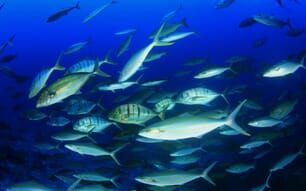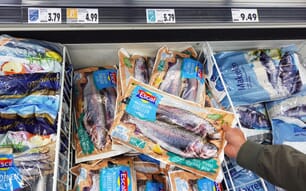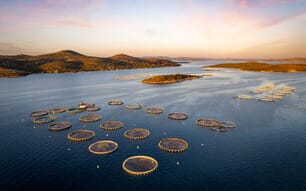Food & Water Europe (FWE) NGO, in its "Decoding Seafood Eco-labels" paper, assessed fishery certification programmes such as Friend of the Sea and MSC. FWE identifies only four concerns regarding Friend of the Sea standards compared to eight concerns regarding MSC. FWE is particularly concerned about MSC's prohibitive costs, lack of carbon food print standards, and free-rider problem.
The 'Free rider' problem is explained by Food & Water as follows. "The fishery is given conditions for improvement, but unfortunately, this means that a fishery with significant flaws may still carry the MSC logo, indicating sustainability, before it has achieved any improvements. This creates what is known as the free-rider problem, in which fisheries that are flawed, yet certified, get to ride on the reputation of the more sustainable certified fisheries. Worse still, it risks seriously misleading consumers who may refer to the full standards and assume that certified products comply completely with all of them".
When comparing Friend of the Sea to other aquaculture certification programmes, the superiority is even more striking as FOS beats all others. Food & Water Europe has identified four concerns for Friend of the Sea and eight for Best Aquaculture Practices (BAP), five for ASC (with other four pending as they still have To Be Defined) and five for Freedom Food.
The study highlights the differences between FOS and the other mentioned programmes: prohibitive costs (BAP); no prohibition of GMOs (BAP); no prohibition of use of hormones (BAP and ASC); certification of farms with negative impact on mangrove ecosystems (BAP); no carbon footprint standards (BAP and ASC); free rider problem (ASC); insufficient workers safety (BAP).
Friend of the Sea has recently been assessed and benchmarked against other alternative eco-certification programs for fisheries and aquaculture. All recent independent benchmarks have concluded that Friend of the Sea scores top or among top certification programmes.
"The result of this new benchmark shows Friend of the Sea is the most reliable eco-label for seafood and the only one affordable for small scale producers of both farmed and wild-caught products," comments Dr Bray, founder and director of Friend of the Sea.
Food and Water Watch Assesses Certification Programmes
GLOBAL - An independent benchmark of fisheries and aquaculture certification programmes by Food and Water Watch has concluded that Friend of the Sea scores best when compared to other programmes.
by Lucy Towers




